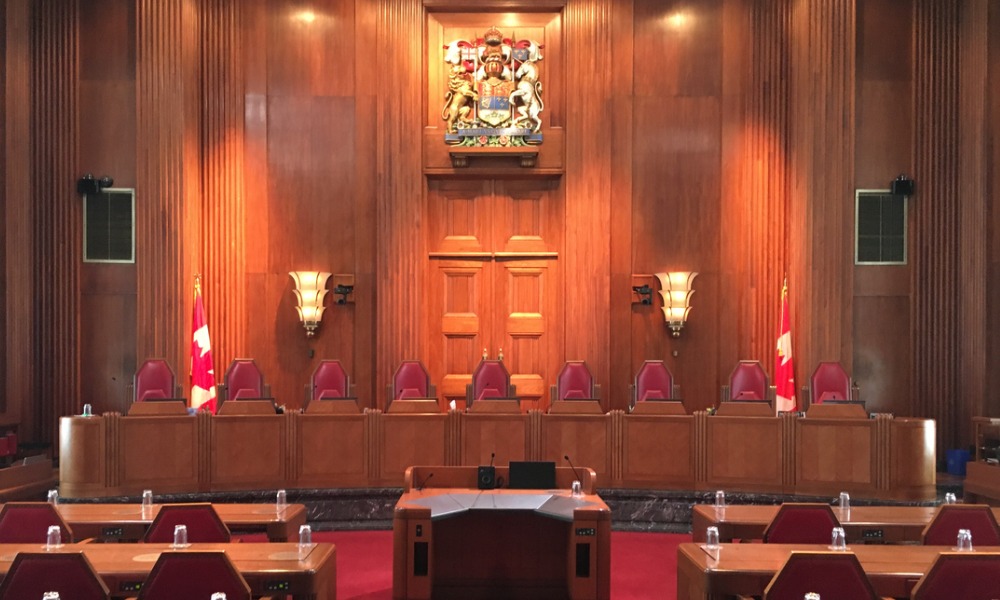Ontario civil | Bankruptcy and Insolvency
BANKRUPTS
No evidence respondent had knowledge of representations and covenants
Application by creditor for declaration pursuant to s. 178 of Bankruptcy and Insolvency Act (Can.), that outstanding debt of respondent would not be released by discharge and order lifting stay to permit applicant to take steps to enforce judgment against respondent. Applicant was insurer of mortgages for approved lenders. Respondent was approached by friend, who asked him to co-sign mortgage in order to help recent immigrant purchase property. Respondent was assured immigrant would make all mortgage payments, assume mortgage and title after one year, and pay him $2,500 for helping. Respondent met with purported mortgage broker and vendor, and executed necessary documents. Respondent and friend purchased property as tenants in common with a $516,370 mortgage, insured by applicant. Mortgage went into default and bank obtained default judgment against respondent and friend for $524,577, took possession, sold house and applied $331,875 net proceeds to debt, and then assigned judgment to applicant, who obtained order to continue action. Respondent’s wages were garnished, leading to his bankruptcy. Application dismissed. While it was established that mortgage arose from fraudulent scheme, s. 178(1)(e) did not apply as respondent did not make fraudulent misrepresentations and had no knowledge of those made by friend with respect to income and property value, nor was he wilfully blind. Respondent was part-owner of property and liable for default, which was exactly what bank bargained for. No specific misrepresentation was made with respect to $2,500 payment respondent was to receive. Respondent did not represent he would occupy property and personally make payments, nor did applicant expressly state it intended Standard Charge Term document to be deemed representation under s. 178. Furthermore, there was no evidence respondent ever received documentation or had actual knowledge of representations or covenants contained within. There was no evidence respondent had knowledge of, or was wilfully blind to scheme. While respondent did not ask to meet immigrant or verify information, he explained he had no prior experience and arrangements seemed normal to him, and he trusted his friend. It was at least probable respondent’s evidence was credible. Friend joined respondent and co-mortgagor and respondent had no reason not to trust him. Mere fact that respondent was bank employee was not sufficient to trigger s. 178(1)(d); respondent was acting in capacity as borrower, not as employee. Respondent awarded $28,000 costs.
Canada Mortgage and Housing Corp. v. Gray (Apr. 30, 2013, Ont. S.C.J., H.J. Wilton-Siegel J., File No. Toronto 31-1594404) 229 A.C.W.S. (3d) 333.
No evidence respondent had knowledge of representations and covenants
Application by creditor for declaration pursuant to s. 178 of Bankruptcy and Insolvency Act (Can.), that outstanding debt of respondent would not be released by discharge and order lifting stay to permit applicant to take steps to enforce judgment against respondent. Applicant was insurer of mortgages for approved lenders. Respondent was approached by friend, who asked him to co-sign mortgage in order to help recent immigrant purchase property. Respondent was assured immigrant would make all mortgage payments, assume mortgage and title after one year, and pay him $2,500 for helping. Respondent met with purported mortgage broker and vendor, and executed necessary documents. Respondent and friend purchased property as tenants in common with a $516,370 mortgage, insured by applicant. Mortgage went into default and bank obtained default judgment against respondent and friend for $524,577, took possession, sold house and applied $331,875 net proceeds to debt, and then assigned judgment to applicant, who obtained order to continue action. Respondent’s wages were garnished, leading to his bankruptcy. Application dismissed. While it was established that mortgage arose from fraudulent scheme, s. 178(1)(e) did not apply as respondent did not make fraudulent misrepresentations and had no knowledge of those made by friend with respect to income and property value, nor was he wilfully blind. Respondent was part-owner of property and liable for default, which was exactly what bank bargained for. No specific misrepresentation was made with respect to $2,500 payment respondent was to receive. Respondent did not represent he would occupy property and personally make payments, nor did applicant expressly state it intended Standard Charge Term document to be deemed representation under s. 178. Furthermore, there was no evidence respondent ever received documentation or had actual knowledge of representations or covenants contained within. There was no evidence respondent had knowledge of, or was wilfully blind to scheme. While respondent did not ask to meet immigrant or verify information, he explained he had no prior experience and arrangements seemed normal to him, and he trusted his friend. It was at least probable respondent’s evidence was credible. Friend joined respondent and co-mortgagor and respondent had no reason not to trust him. Mere fact that respondent was bank employee was not sufficient to trigger s. 178(1)(d); respondent was acting in capacity as borrower, not as employee. Respondent awarded $28,000 costs.
Canada Mortgage and Housing Corp. v. Gray (Apr. 30, 2013, Ont. S.C.J., H.J. Wilton-Siegel J., File No. Toronto 31-1594404) 229 A.C.W.S. (3d) 333.







